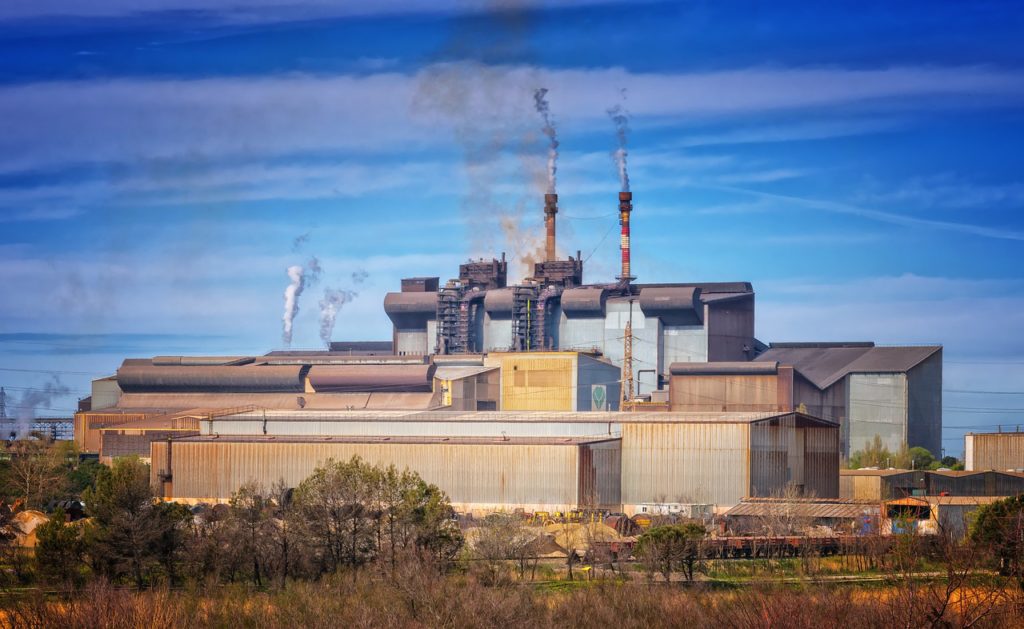The term utopia was coined by Thomas More for his famous book of the same name, in which he lays out an account of the perfect, most just regime. For More, the name was a joke: it literally means “no place,” and thus suggests that, for More at least, the best regime is a lot more likely to exist in theory than in practice.
Although More invented the word relatively late in the development of political philosophy, the idea has haunted the discipline since its origins. Plato’s Republic, after all, is an account of a best regime that Socrates admits all along may never be able to exist in any real political community. A vital thread of the whole history of political philosophy, then, is this concern with utopia, with political perfection: how can it both inform our aspirations and limit our expectations?
The effort to combat climate change is nothing if not aspirational. It is important, though, to pay attention to the other side of the utopian coin. If this effort is in some respects utopian, how should the accumulated wisdom of human experience moderate our expectations for the climate change movement?
The utopian character of the effort to combat climate change can easily be seen in the simplest statement of the problem and the proposed solution. We are told that human beings are causing the climate to change in deleterious ways and that therefore human beings must change their behavior in order to prevent the impending catastrophe. We know from all political experience, however, that human beings will not voluntarily depart from behaviors that are in their short-term interest, or to which they are accustomed by long habit. Therefore, the necessary modifications in human behavior will have to be directed by government.
Start your day with Public Discourse
Sign up and get our daily essays sent straight to your inbox.This leads us directly to the utopian difficulty: we are told that human behavior must be regulated differently to address climate change, but there is no government with the authority to do this. There is and never has been any world government with authority to command the behavior of human beings as such. We have known nothing except partial authorities over limited communities, small, large, and in between: the polis, the empire, and the nation-state. The government that can fight climate change is quite literally “utopia”—no place. It does not exist.
The proponents of action against climate change know all this, of course. Thus they try to tackle the problem through the voluntary, coordinated action of the existing system of numerous national governments. Hence the Paris Climate Accords, from which President Trump has recently withdrawn the United States.
This mode of proceeding only obscures, without solving, the utopian difficulty. Such a plan calls upon all governments of the world to coordinate their economic regulations with a view to a global common good. More than that, in at least some cases it requires governments to sacrifice their nations’ short- and medium-term interests for the sake of a global common good. Such a thing has never been achieved in the history of humanity from its origins to the present. The project seems very reasonable in view of the global scope of the problem to be addressed. We must nevertheless admit that those pursuing such a project are asking the human race to do what it has never done before. Their project is to that extent a utopian one.
There is another aspect of the problem. The scope of the political action to be undertaken is unprecedented not only geographically but also temporally. Climate change takes place gradually. The adverse consequences of it will not emerge all at once next year, or even ten years from now. Rather, the worst of the predicted problems will only come to be several decades from now. Thus the aim of the Paris Climate Accord is to limit the global increase in temperature to less than two degrees Celsius in this century. The fight against climate change calls on governments to enact policy with a view to achieving a goal more than eighty years in the future.
Students of Alexis de Tocqueville’s Democracy in America will be tempted to smile and shake their heads ruefully at this aspiration. They will recall Tocqueville’s observation that democracies of all governments are the least able to sustain a plan of policy over a long period of time. Aristocrats tend to think in terms of multiple generations. Their minds run back into the distant past and forward into the distant future, preoccupied with their duties to their ancestors and their descendants. The citizens of a democracy, in contrast, are largely preoccupied with the present, and the politics of a democracy is affected accordingly. The time frame of democratic politics is necessarily the time frame of the average, ordinary person, who usually lacks both the leisure and the desire to meditate on remote futurity.
These reflections, although true, may actually understate the problem. Has any government—democratic, aristocratic, or monarchical, free or despotic—at any time in human history ever conceived and adhered to a policy with a view to achieving some end not to be realized until several decades later? It is difficult to think of an example. The overwhelming majority of all political action in the life of the whole human race has been a matter of muddling through the next five to ten years—and maybe twenty to thirty years in the case of the (very rare) far-sighted statesman. It thus begins to look as if the fight against climate change requires the kind of foresight and consistency that is not only beyond the capabilities of modern democracy, but also beyond the capabilities of human beings as such.
What should the climate activists make of these reflections? They need not take them as counseling despair, but instead as counseling moderation—one of the great lessons that political philosophy teaches by contrasting our utopian aspirations with our comparatively more limited actual capacities. The most zealous proponents of action to stop climate change sometimes talk as if all opposition arises from perversity and selfishness. Their impulse to condemn would be tempered if they were to recall that they are asking human beings not only to do what they have never done, but even what they have never really even ever tried to do. And a spirit of temperance and calm could only make the debate about climate change—and, in fact, all of our political debates—more rational and more fruitful.













